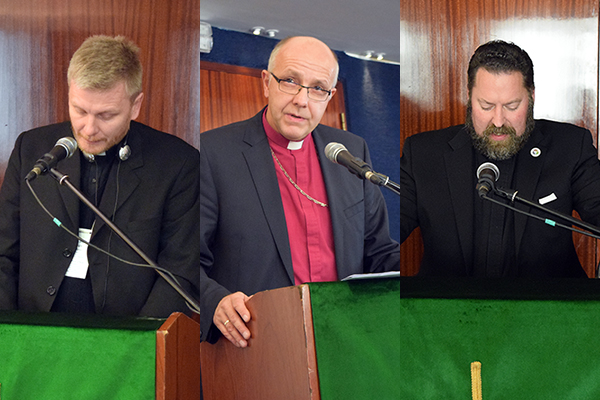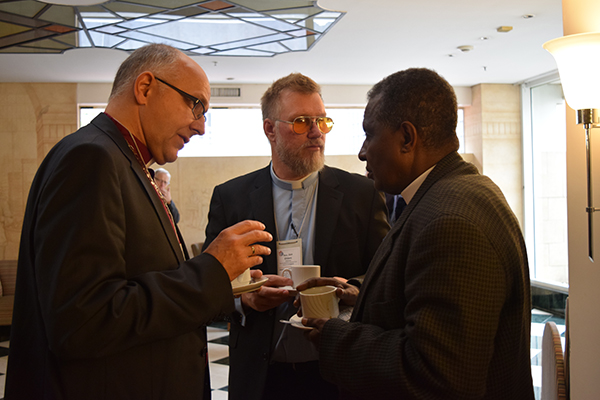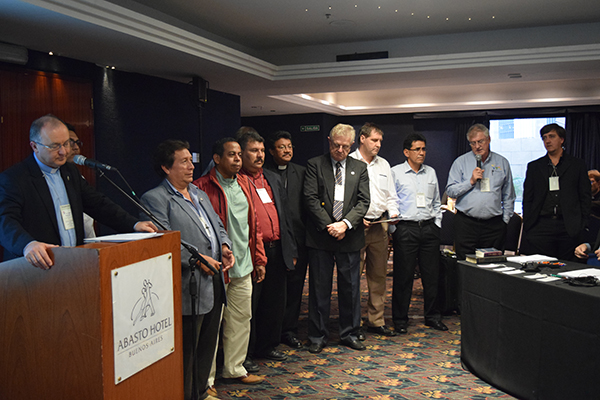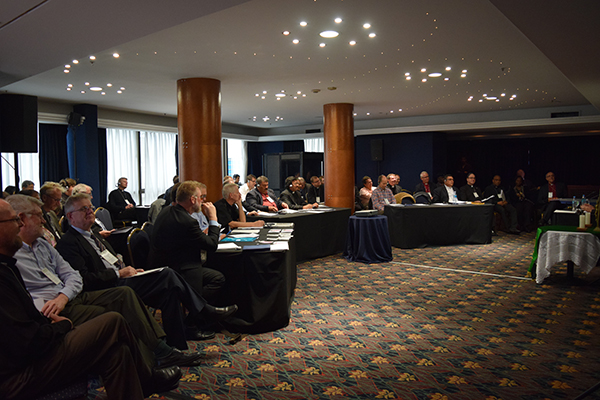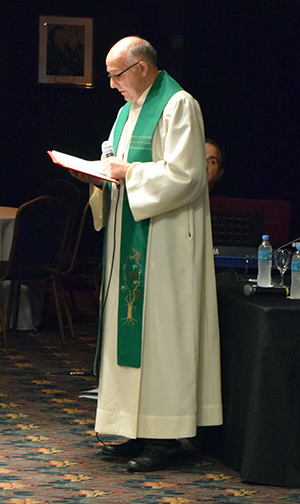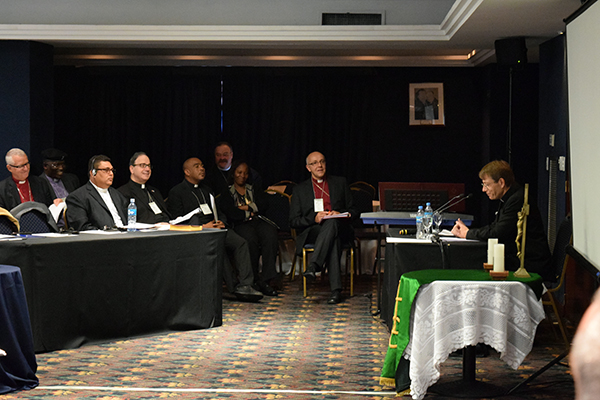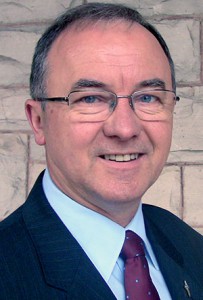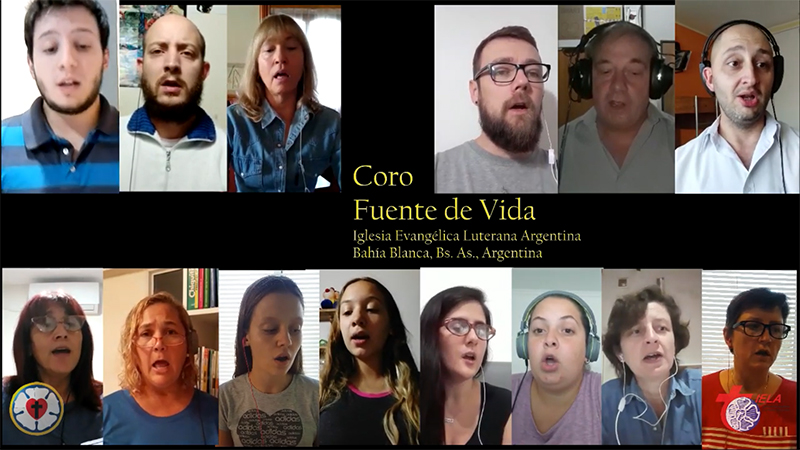
Choir members of Santa Cruz Lutheran Church in Bahía Blanca (Buenos Aires, Argentina) sing “Yo sé que vive el Salvador” (I know that my Redeemer Lives) for online Easter celebrations in this YouTube video.
WORLD – Member churches of the International Lutheran Council continue to reach out with the good news of the Gospel in response to the COVID-19 pandemic.
In this article, we highlight the situation facing ILC member churches in Argentina, Belgium, and South Sudan.
Argentina
Argentina has reported 2,669 cases of COVID-19 so far, with 123 deaths. The country has been in lockdown since March 20, with the general public allowed to leave their homes only to buy food or medicine.
As church services are currently prohibited, the Evangelical Lutheran Church of Argentina (Iglesia Evangélica Luterana Argentina – IELA) has responded by equipping members for home devotions. Pastors are offering resources ranging from written liturgy and sermon, to audio, to video. Many churches are livestreaming services for members, or uploading them to YouTube. During the week, several churches are also hosting Bible studies on Facebook or other platforms.
“We emphasize communication among our members as a way to care for and sustain ourselves in this difficult time,” explains IELA Pastor President Arturo E. Truenow. Pastors are using phone and video calls to provide spiritual support. In cases of dire need, pastors are currently allowed to visit a member’s home.
The IELA is providing various resources for members through its website. There members can find brief devotionals, Bible studies, and free access to the church’s national magazine El Nuevo Luterano. The church has also issued an internal document to pastors and parishes reporting IELA board decisions regarding the COVID-19 crisis
The church’s seminary has moved education online, as have the IELA’s ten schools. The church schools, however, are facing financial hardship as a result of the pandemic and are struggling to pay wages for teachers and administrative staff.
The many challenges in this situation should lead us back to God in prayer, says Pastor President Truenow. “We continue to pray that God will soon free us from this pandemic, and, in the meantime, keep us firm in the faith, take care of us, and assist us in caring for others.”
Belgium
Belgium has been particularly hit hard with COVID-19, with one of the highest reported death rates for the disease in the world. More than 36,138 cases of COVID-19 have been reported in the country, with 5,163 deaths. Belgium has been in lockdown since March 18, and containment measures are scheduled to last at least until the beginning of May.
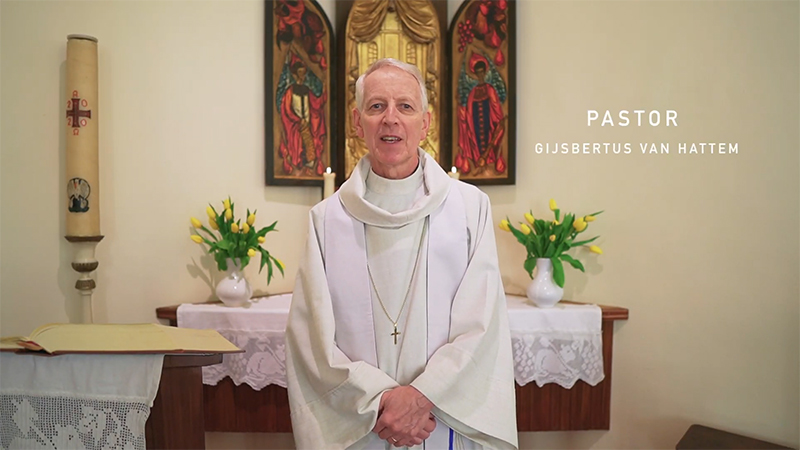
ELKB President van Hattem brings Easter greetings to members of the church online.
In the midst of the crisis, the Evangelical Lutheran Church in Belgium (Evangelisch-Lutherse Kerk in België – ELKB) continues to reach out with the good news of the Gospel, making devotions, liturgy, and video of worship services available online.
In a letter to the church, ELKB President Gijsbertus van Hattem reflected on the meaning of the word “quarantine.” The word, he explains, originally refered to a 40-day period of isolation following the arrival of ships in Venice around the 15th century. “The number forty plays a major role in the Bible” too, President van Hattem notes: forty days and nights of rain during the Flood; forty years in the desert for the Israelites on the way to the Promised Land; forty days of temptation for Jesus in the garden; forty days of post-resurrection appearances by Jesus before His ascension into heaven. And Lent, drawn from these biblical examples, is likewise a season forty days in length.
“In the Bible, the number forty represents a change, a preparation time for something else or something new, something better,” President van Hattem writes. “In the current quarantine, we naturally hope that afterwards the COVID-19 virus will be manageable.” But there may be other changes too, he says: challenges like economic stagnation, yes, but also environmental healing, air-quality improvements, and reduced crime.
President van Hattem encourages the members of the ELKB to also use the figurative “forty days” of the COVID-19 quarantine for spiritual change as well. “In these forty days of Lent, an additional time to reflect is given to us,” he writes, “to reflect on the future of our earth, on our relationship with God and with those around us. By spending more time at home, we all of a sudden have more time to read God’s Word.”
“The churches are still closed for the time being—we are in the desert,” he says. “But the churches will open again—the promised land lays ahead. And then we will thank and praise God with renewed courage and faith, and again receive His Word and Sacrament.”
South Sudan
The country of South Sudan currently reports four cases of COVID-19. But the nation has limited medical resources, and so there are concerns that an outbreak in the region could be particularly deadly. To curb the spread of disease, South Sudan enacted containment measures even before confirmation of the virus in the country.
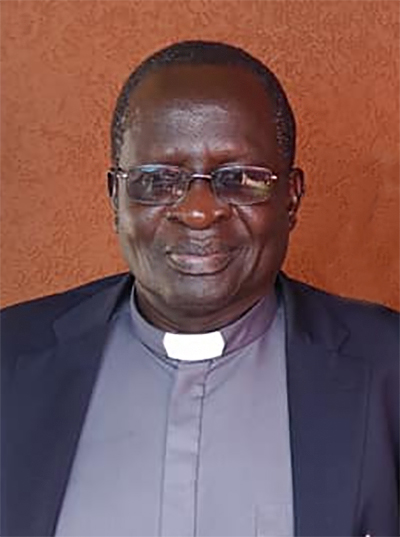
SSELC Bishop Nathaniel Bol Nyok
The South Sudan Evangelical Lutheran Church (SSELC) is facing substantial difficulties in ministering to its members as a result of the crisis. “Technology is still a nightmare in most areas,” notes SSELC Bishop Nathaniel Bol Nyok. “Lack of technology has made it impossible for the church to provide online worship services as is being done in countries with better internet.”
Pastors continue to minister to parishioners as they are able, while observing social distancing. Those with cellphones are also being ministered to in this way.
“Despite all this, Christ is risen and He is alive, and there is nothing that can separate us from the love and care of the risen Lord Jesus Christ,” encourages Bishop Nyok. “He is a conqueror who, through His death and resurrection, has conquered everything—including COVID-19. Christ has liberated us from fear because we live and die in Him.”
“It is my prayer that the risen Lord and Saviour Jesus Christ, by His grace, mercy, and love for His Church and for the whole human race, will bring this pandemic to an end quickly,” he says.
———————
For more news and information from the International Lutheran Council about the COVID-19 pandemic, click here.

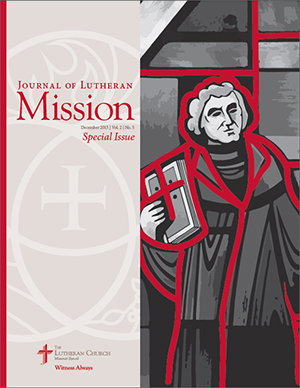 ONLINE – Presentations from the International Lutheran Council’s (ILC) 25th World Conference (held in Buenos Aires, Argentina September 23-26, 2015) have been published in a special issue of the Journal of Lutheran Mission.
ONLINE – Presentations from the International Lutheran Council’s (ILC) 25th World Conference (held in Buenos Aires, Argentina September 23-26, 2015) have been published in a special issue of the Journal of Lutheran Mission.